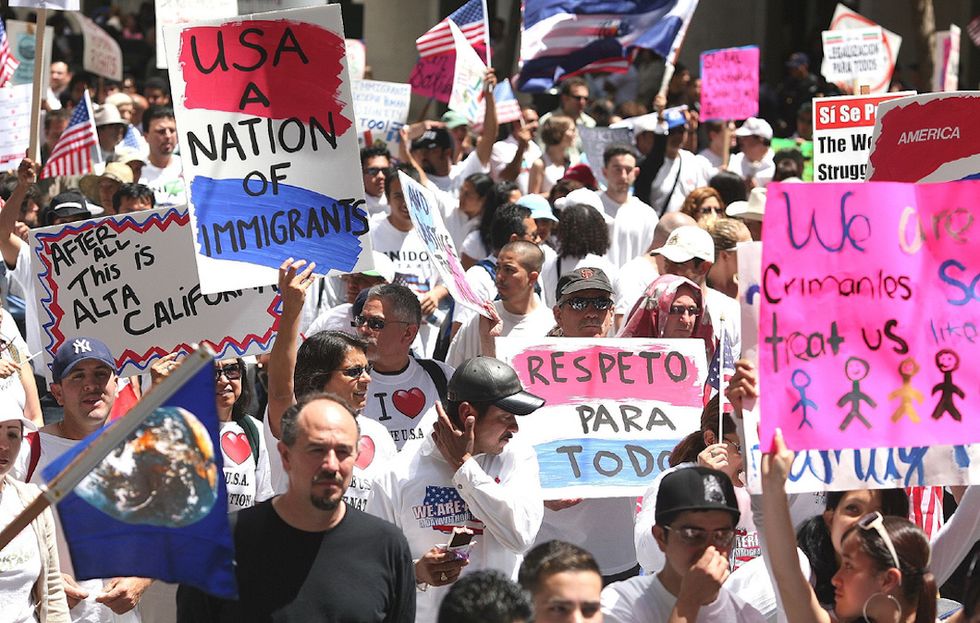Let's talk stereotypes. You see Latinas portrayed in movies and TV shows as maids. The Hispanic housekeeper is either old and doesn't speak English too well, or she's young, sultry, and very passionate about cleaning messes on her hands and knees.
What about Latinas in films based in New York, California, or close to the border? They're gang bangers, they're ghetto, they wear flannel and chains and will do anything for the man they love, even if it means killing someone.
Latinas and Latinos alike are always misrepresented, such as assuming we're all Mexican. We're always thought of as having bad tempers, as not being able to speak English, and most definitely everyone thinks we're all immigrants.
Now, let's talk about Latinas, and I mean, let's talk about real Latinas. They're mothers, sisters, daughters. They are state representatives, business owners, and some of the hardest working women you'll ever meet. They are not accurately represented in pop culture and rarely do we see other cultures besides Mexican Latinas.
Disney now has an animated show about a Spanish princess named "Elena, Princess of Avalor." It's great that Disney took this giant leap of faith in a princess that's is supposedly a representation of Latinas, but how are the rest of us supposed to be represented?
Nancy Kanter, a senior vice president of Disney Junior, the program that aired the show about the Spanish princess, went as far as to say that Elena was technically not Latina, as opposed to the fair skin, light-eyed princess "Sofia the First," whose mother had a much darker complexion than her own, to which Kanter said that Sofia (and quite possibly Elena) is a fairytale girl living in a fairytale world.
I don't remember the last time I saw a Latina depicted as anything other than Mexican, overly-religious, with a dark complexion, and a "crazy" side. Last time I checked, Latinas come in all colors, shapes, and sizes, and have very different personalities.
My grandfather's side of the family was fair skinned, light-eyed, and blonde. My great-aunts have blonde hair and blue eyes, and they are Cuban. Which poses this question: what does a Cuban look like? How we can we accurately represent such a diverse group of people, making sure that everyone is accounted for?
When people say that I'm just a white girl, they don't realize that I'm a Latina. Sure, I drove my pickup truck in high school and hung around with the "rednecks," but they all had Hispanic names, spoke Spanish, and wore camo. They were "Cuban Rednecks," and it was something you got accustomed to in Miami.
When my mother came to the United States from Cuba, she was four years old. She went to work with my grandmother as a housekeeper, every day. She didn't have free days nor time to play. She worked hard, just like my grandmother did, to help provide for their family.
Whether they were born in this country or fled their home to better their lives, Latinas are here, and they are here to stay. From the moment they can walk and talk, they are put to work. They'll work as seamstresses, housekeepers, babysitters, and take care of all of the domestic work without getting a chance to decide their own future.
We need to embrace our culture, not further the stereotypes. Stop allowing people to mock your culture or your country or family, stand up for your people. Be proud of who you are and where you come from. You're a Latina, baby, and there's no one better than you.






 The minimum wage is not a living wage.
StableDiffusion
The minimum wage is not a living wage.
StableDiffusion
 influential nations
StableDiffusion
influential nations
StableDiffusion












